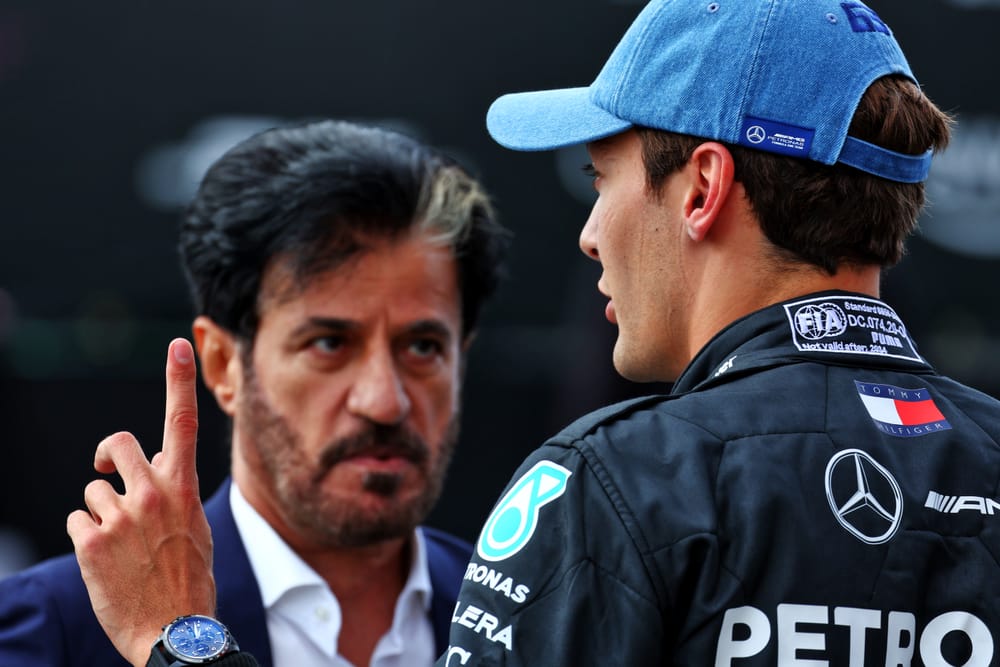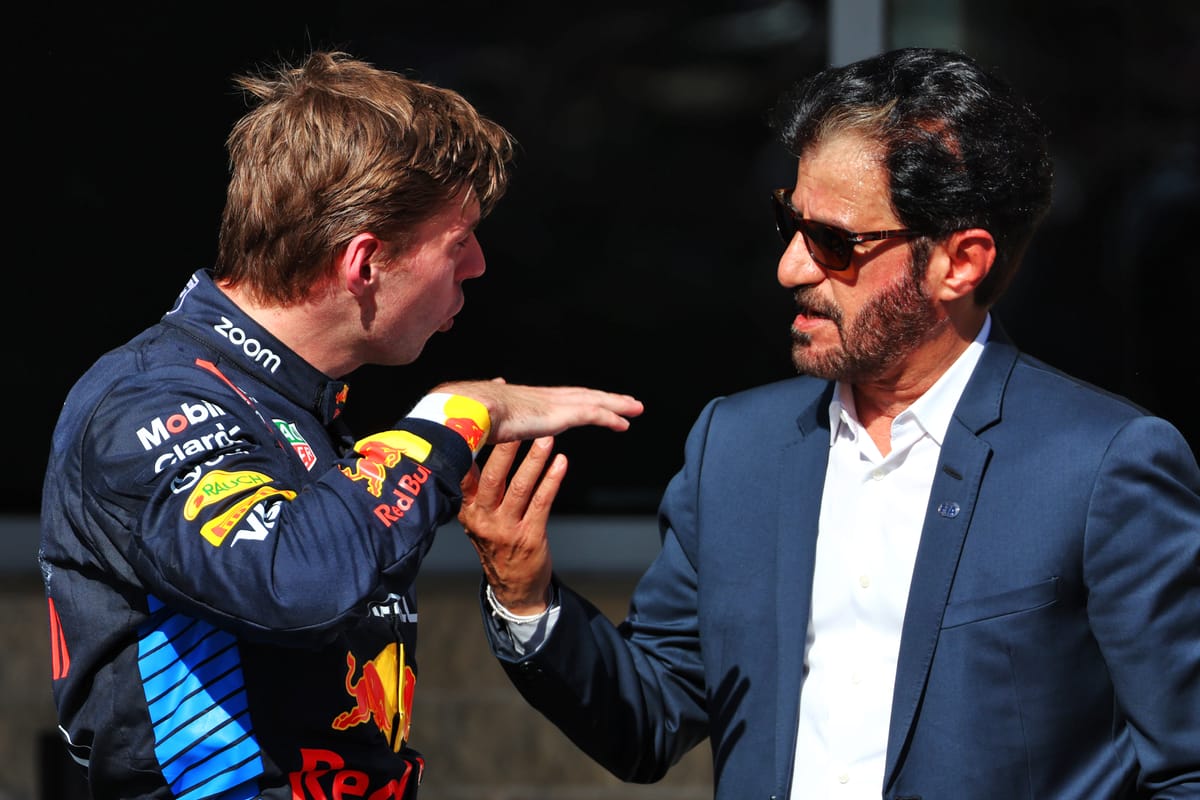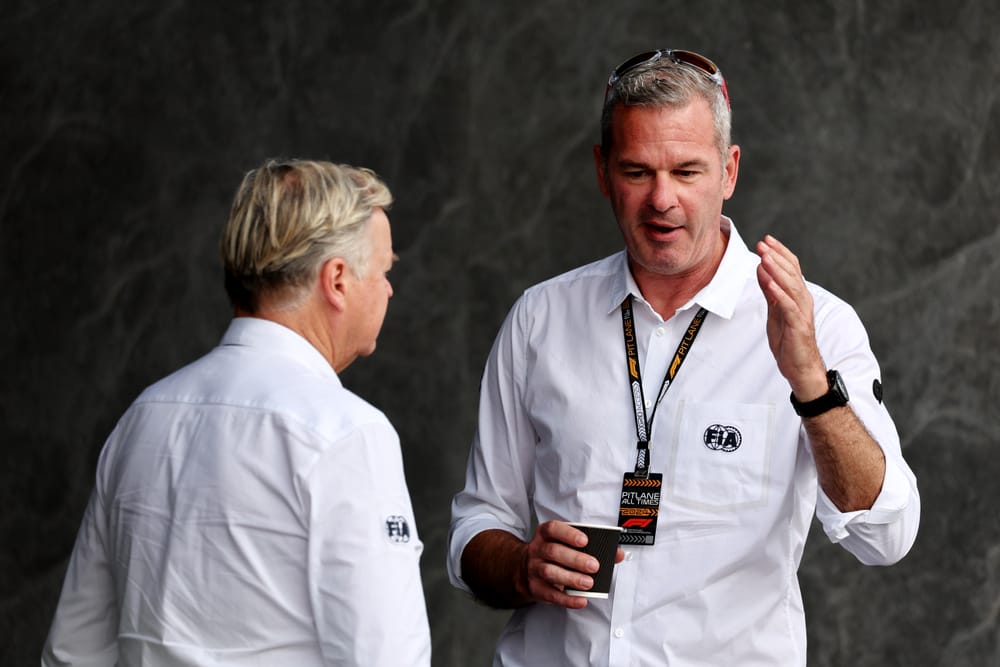Up Next

Formula 1 drivers are frustrated that Mohammed Ben Sulayem’s FIA “only seems to be going, to a degree, in the wrong direction”, says Grand Prix Drivers Association director George Russell.
The GPDA, of which all current F1 drivers are members, recently issued a rare statement that publicly called out Ben Sulayem for the language and tone he uses, and implied the governing body treats F1 drivers like children.
It had been weeks in the making after the drivers felt a swearing clampdown had been handled poorly, with world champion Max Verstappen given the equivalent of community service for a single swear word in a press conference.
Russell said acting publically was because “we’ve probably learned from the past that whenever we have spoken up internally it hasn’t gone anywhere”, and “maybe we’ll show how seriously we feel as a whole on the subject”.
The GPDA statement has not been met with a response, Russell said, “but maybe there'll be something to come”. his team-mate Lewis Hamilton said "I'm sure we'll chase them up", but The Race understands that there is not a response currently planned.
"The FIA have to be better at working and collaborating with us, because we want the sport to continue to thrive and be better, we have zero to gain with the comments that we're making," added Hamilton. "In terms of things that can be better, all we ask is that they communicate with us and include us.
"There needs to be more than that."
It is not the first time Ben Sulayem has been at odds with F1’s drivers – for example, it was felt that Hamilton was made an example of in early 2022 when Ben Sulayem directed his organisation to enforce rules around jewellery and correct underwear while in the car.
But clashing with the drivers is just part of a so-far controversial FIA presidency, which has included significant tensions with Formula One Management, and a series of high-profile departures including his CEO, the FIA compliance officer, and the F1 sporting, technical and race directors.
F1 race director Niels Wittich was let go recently, and while not all the departures have happened at Ben Sulayem’s behest, most have been connected to him and Wittich’s exit is one example.
Asked what level of confidence the drivers have in the leadership of the FIA at the moment, Russell said after a long pause: “I’m not too sure to be honest. We recognise that everybody is working as hard as they can to do the best job possible.
“There’s obviously a huge amount of change within the FIA quite regularly. So it’s clearly not the most stable of places and maybe that’s why it’s been a bit challenging to get some of the changes we’ve wanted implemented.
“Everyone has their own side to the story, but I think if we feel we’re being listened to, and some of the changes we’re requesting are implemented, because ultimately we’re only doing it for the benefit of the sport, then maybe our confidence will increase.
“I think a number of drivers are probably a bit fed up of the situation and it only seems to be going to a degree in the wrong direction.”
RACE DIRECTOR EXIT ‘A PRIME EXAMPLE’
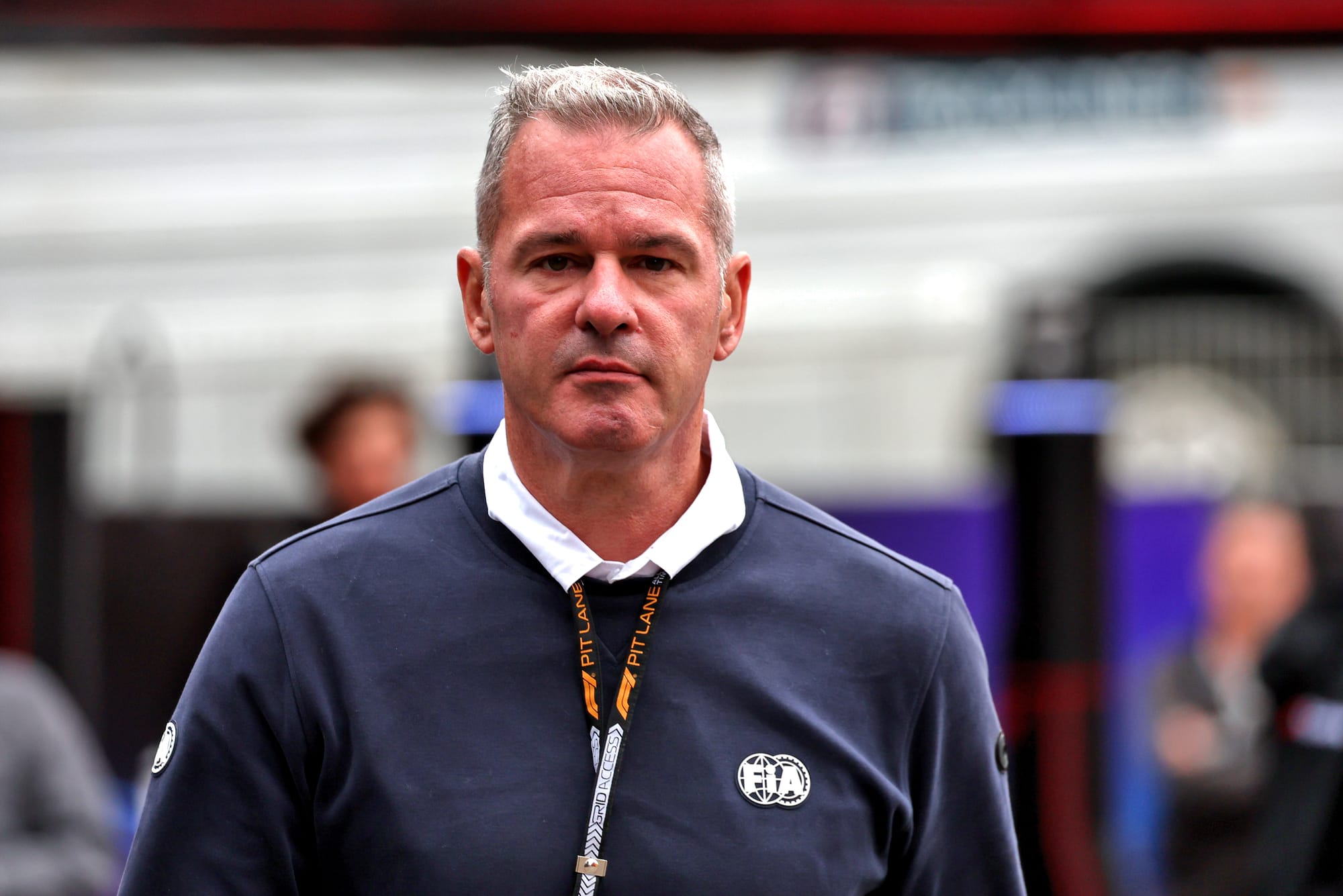
The GPDA statement was a manifestation of this frustration, particularly on matters where drivers feel they are still being ignored.
Russell said that it was proving difficult to be taken seriously and that a desire to work together with the FIA has not been meet, at least with Ben Sulayem directly.
“Definitely not difficult to get a sit down, but getting things to change or promises upheld seems slightly more challenging,” Russell said.
“Maybe the FIA or president didn’t recognise how seriously we all felt. So I think that’s why over the course of 20 races this year and also even last year we spoke about a number of topics, all of the drivers, we all feel pretty similar.
“We all know what we want from the sport. And the direction it’s been heading, we probably feel we want to do a small U-turn on a number of topics.
“We just want to work together with the FIA on this, that’s what we’ve felt has not been happening at all, at least directly from the president.”
Russell called Wittich’s departure a “prime example” of the transparency and dialogue drivers are looking for from the FIA. F2 and F3 race director Rui Marques is stepping in the for final three races of the season.
“We definitely weren’t aware, it was a bit of a surprise for everybody,” he said.
“It’s a hell of a lot of pressure now onto the race director, just three races left.
“We probably feel like we’re the last to find out this sort of information. When it involves us directly it would be nice to sort of be kept in the loop and have an understanding for what decisions are being made.
“Time will tell. I’m sure the new guy will handle the position just fine. Definitely not an easy race for a new race director.”
Max Verstappen said "of course it is a bit weird with three races to go to do that", and added: "Normally if you want to change a race director then do it after a season and then you have a bit of time for the race director himself to get up to speed with things.
"Then you have pre-season testing, you get into your role a bit more, but let’s see how it goes, they have decided it and we have to deal with it."
‘HIRING AND FIRING’ NOT THE ANSWER
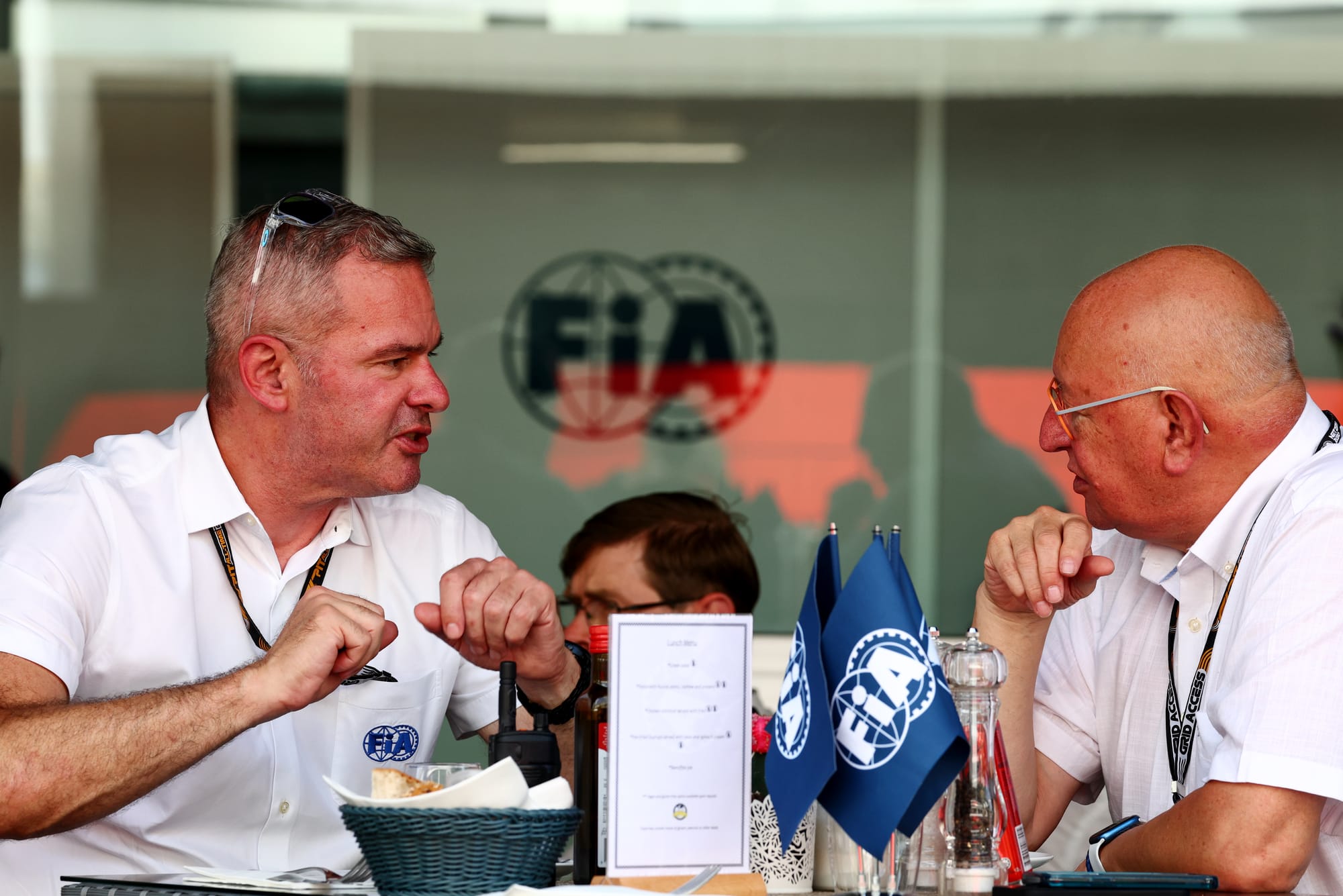
Several drivers expressed the view that replacing Wittich was not necessary. His time as race director was not beset by the sort of flashpoints that characterised his predecessor Michael Masi’s tenure, although at the previous race in Brazil, there was criticism over the delay in red-flagging the race when the rain was at its worst.
Russell said it is “no secret” that some drivers weren’t happy with some decisions that had been made but “just hiring and firing is not the solution”.
“Every time there’s a change, you have to take one step back before you make two steps forward,” said Russell.
Williams driver Alex Albon had said it was a “surprise” to him as Wittich has “one of the hardest jobs in the paddock”.
“I feel he was doing a very good job at it as well,” Albon said.
“I think he was balancing the whole thing as best as he could.
“To comment on the change, it’s not really my position but I felt like he was more than capable to do the last races.”
Other drivers to have commented include Kevin Magnussen, who compared it negatively to when race direction was at the control of the late Charlie Whiting.
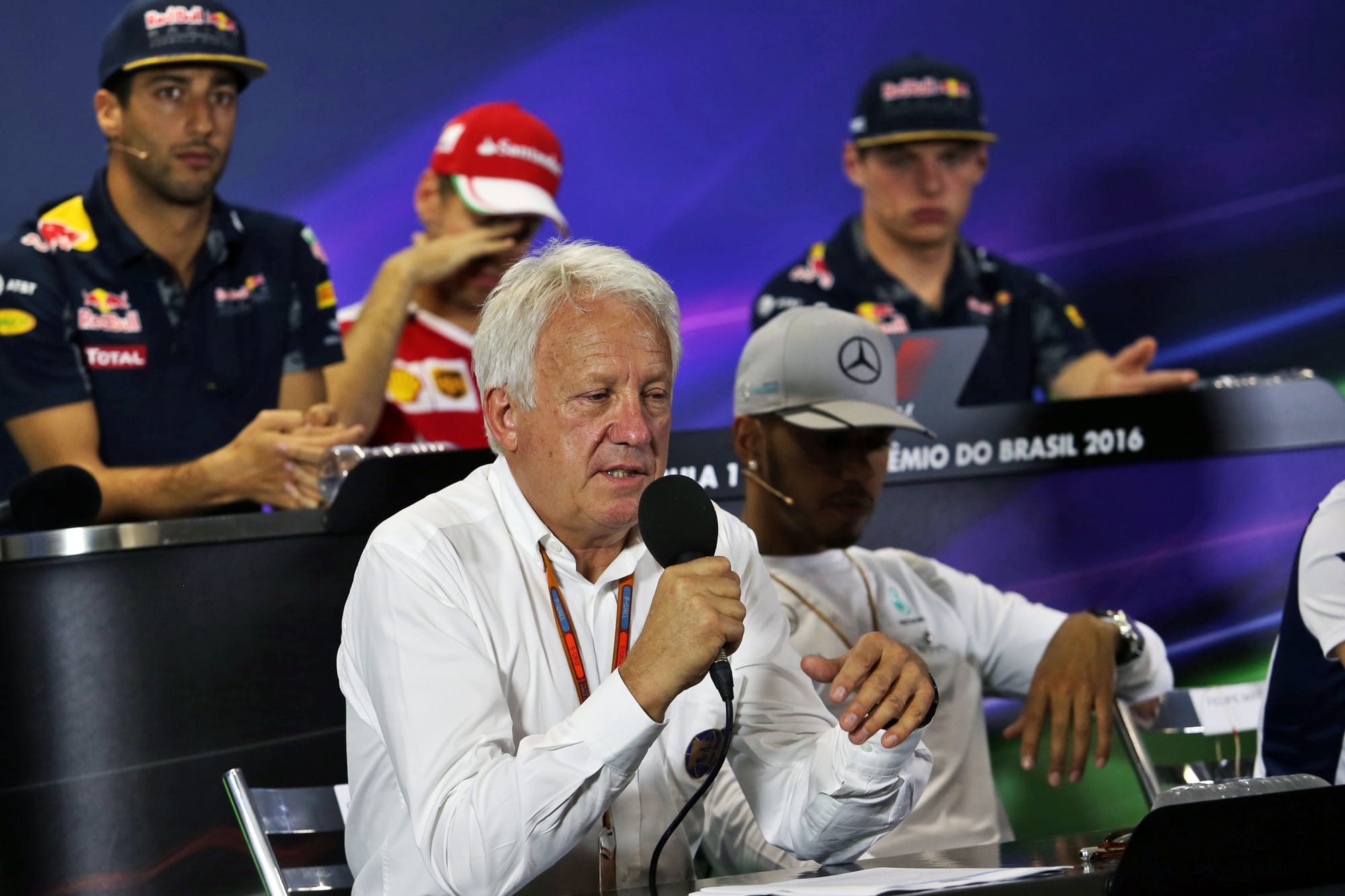
“As drivers he was someone we felt really connected to,” said Magnussen.
“It always felt like we were being listened to.
“Now it seems like a lot of us are against them.
“There should definitely be more cooperation and closer connection between us and them because we can help each other a lot.”
McLaren driver Lando Norris said he sympathised with the officials because “it’s probably one of the hardest sports to police in the world” but admitted “things are not running as smoothly as we’d want”.
“Pretty much every other sport you have permanent stewards, a permanent team that runs everything for consistency and many other reasons,” Norris said.
“That’s what we want as drivers, that’s what we request. We acknowledge it’s a very tough position to be in.
“To put yourself up for the role in the first place takes a lot of guts because you know you’ll get it from every side at some point.”
THE ISSUE OF FINES
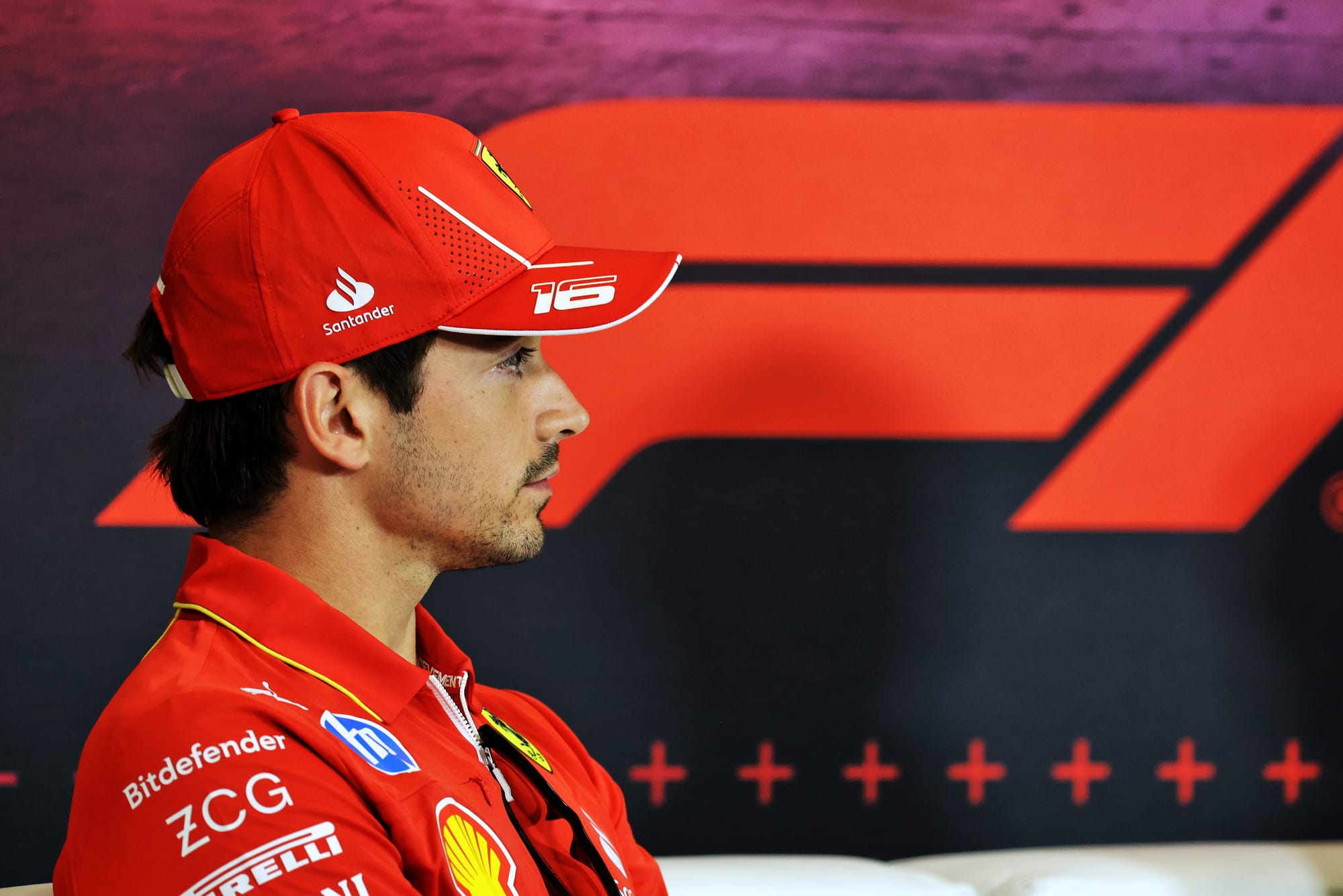
Another part of the GPDA letter was calling for transparency on what driver fines are used for.
Draconian financial penalties have been hinted at during Ben Sulayem’s presidency and while these have mostly been avoided Russell said that if the biggest fines being talked about ever become a reality, the FIA should disclose where the money goes.
“When we were hearing from the FIA a couple of years ago, [around] the presidential elections, they were talking about transparency, where the money was going to be reinvested, the grassroots racing, which we’re all in favour of,” Russell said.
“When it comes to these large fines, there’s a number of drivers on the grid who can comfortably afford these fines. But there are maybe some rookies on the grid, if they’re handed a one-million dollar fine, they can’t afford it.
“If we know where that’s been reinvested and it’s going into grassroots or some training programmes, then we [would understand]…as I said, we just want the transparency and what was promised from the beginning.”


